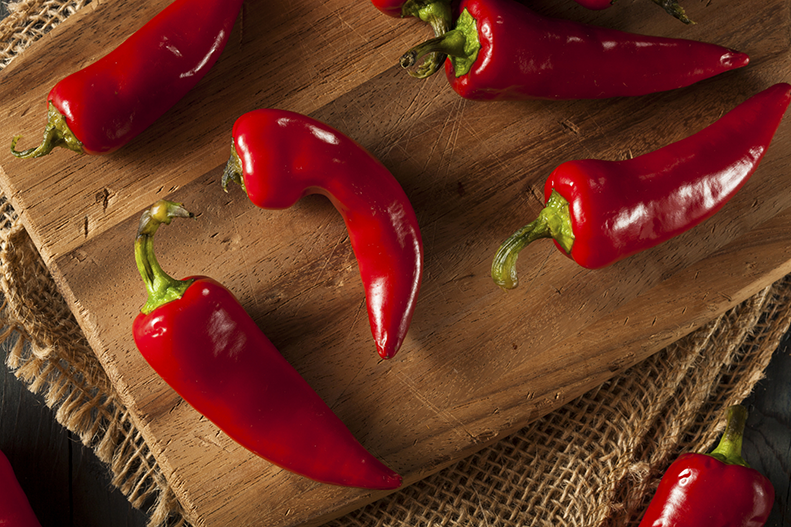For some, there’s no greater joy in life than digging into a delicious dinner or enjoying a rich, decadent desert. However, for others, the after-effects of gorging on some foods far eclipse the delight of enjoying a good meal. In many cases, it’s not a matter of overeating, but rather some foods have a reputation for wreaking havoc on a person’s digestive system. Digestive system issues, such as nausea, acid reflux, or heart burn, bloating and diarrhea can all be triggered by certain foods. If you experience these symptoms, keep these potentially offending foods in mind next time you grab a bite to eat:
Spicy Foods
Capsaicin, the hot ingredient in chili peppers, can add a kick of flavor to any meal however, may cause indigestion and heartburn for some people.
Never Miss a Beat!
Subscribe to Our HealthBeat Newsletter!
Thank you for subscribing!
You can now select the specific newsletters you'd like to receive.
You are already subscribed.
Subscribe to more newsletters in our email preference center.
Sorry, an error occurred. Please try again later.
Get Healthy Tips Sent to Your Phone!
Dairy
For individuals with lactose intolerance, dairy products can cause gas, bloating, cramping and diarrhea. People with lactose intolerance do not produce enough lactase, an enzyme that breaks down lactose, the sugar in milk. Also, dairy products, like milk, are sometimes used to relieve ulcer pain because it coats the stomach lining. However, milk actually stimulates the stomach to produce more acid, which can aggravate ulcers.
Alcohol
Alcohol can irritate and inflame the stomach lining, causing symptoms like nausea and vomiting. Alcohol also relaxes the esophageal sphincter, the muscles that keep acid confined to the stomach, which can cause heartburn. Excessive drinking can cause more serious problems, such as nutrient malabsorption, stomach bleeding, pancreas damage, and liver disease.
Caffeine
Caffeine is another stomach irritant that can increase symptoms of heartburn. It also stimulates the gastrointestinal tract, making contents move more quickly through your digestive system, causing cramping, bloating and diarrhea. Additionally, caffeine is a diuretic which can cause dehydration, which can contribute to constipation.
High Fat Foods
Dietary fats slow digestion, which can make you feel uncomfortably full and increase pressure on the esophageal sphincter, causing heartburn.
People with pre-existing stomach conditions should be especially careful when consuming foods that can irritate the digestive system. There are alternatives you can try for these five foods, such as replacing your favorite dairy foods with lactose-free products, drinking decaffeinated tea, coffee, and soda, and eating lower fat foods.
About Digestive Disorders
UPMC Digestive Health Care cares for a wide range of gastrointestinal (GI) conditions and diseases, from diagnosis to treatment. Whether your digestive condition is common or complicated, our experts can help. Upon referral from your physician, we coordinate your testing and treatment. If you have a complicated condition, we can refer you to one of UPMC’s digestive health centers of excellence. Find a GI doctor near you.
